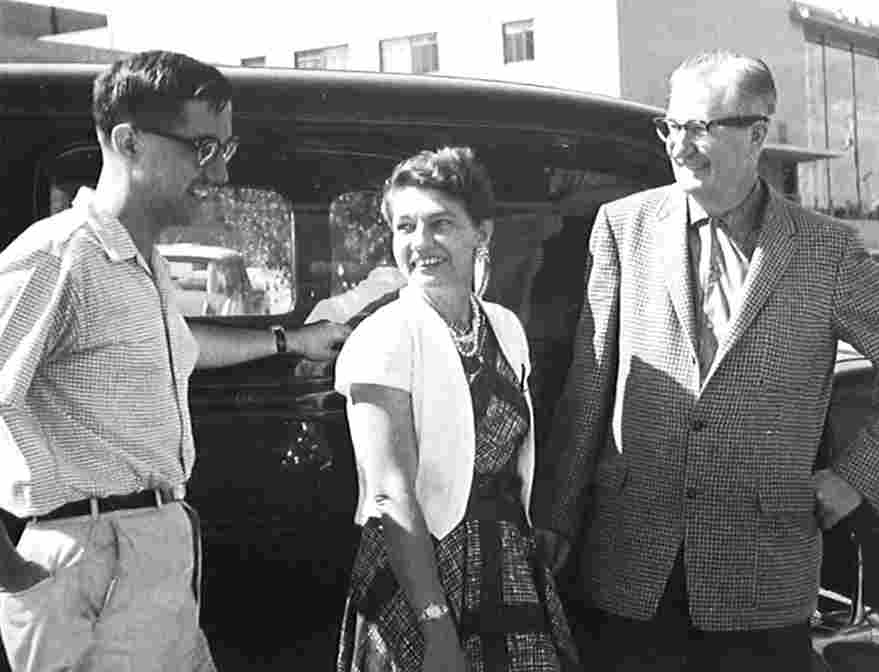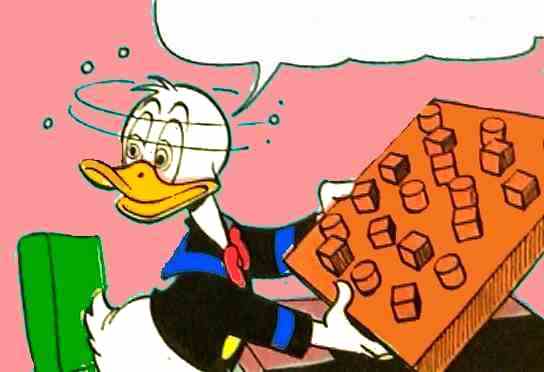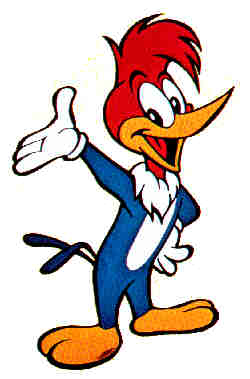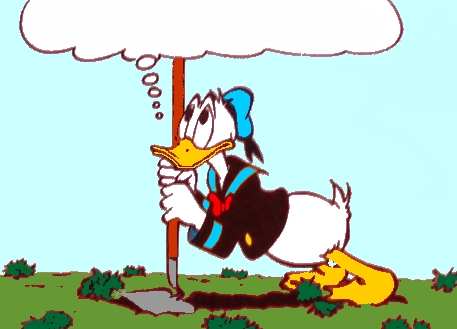...Your curiosity
about how scripts are written, pages drawn, etc.
makes me fear you might end up in a comic book
career. Plumbing pays more money and the hours
are shorter.
My writing procedures have usually been:
1. Get an idea for a story gimmick...
2. Plan the locale...
3. Figure out some business for the gimmick...
4. Figure out how to involve the ducks in the
business.
5. Get a plausible reason for the ducks'
involvement and spring it early in the story.
6. Figure out a surprise ending. This part
usually comes to mind after three or four days of
writing gags for the script.
7. The foregoing should fill a page or two of
longhand note jotting. Now try to think of as
many gags as possibly can be related to the
planned business. Fear gags, cold gags, spooky
gags, stingy gags (for Uncle Scrooge), gags using
Junior Woodchucks' Guidebook, etc. etc.
8. Among those gags will be several that suggest
lengthy pieces of business. Start the story with
the weaker ones and polish the dialogue with lots
of shortening and rewriting...
9. Start drawing when a script is broken down
into panels and pages. I drew direct onto the
drawing paper with a Scripto light blue pencil,
and inked with a 356 Esterbrook pen. My wife
inked the dialogue with an A-5 or B-6 speedball,
and blacked the solid areas with a #2 sable brush.
I seldom made preliminary sketches on other
sheets of paper, except for model drawings of a
new character or prop or special costume.You ask if I took into
account the fact that color would fill out my
drawings. Yes, but after years of doing ducks in
outline with little inked shading the bare
formula became second nature. When I knew a one-strip
gag would be printed in black & white I
usually shaded them a little...
...The top sales figure for Walt Disney Comics
was above 3,000,000 in its heyday...
|




